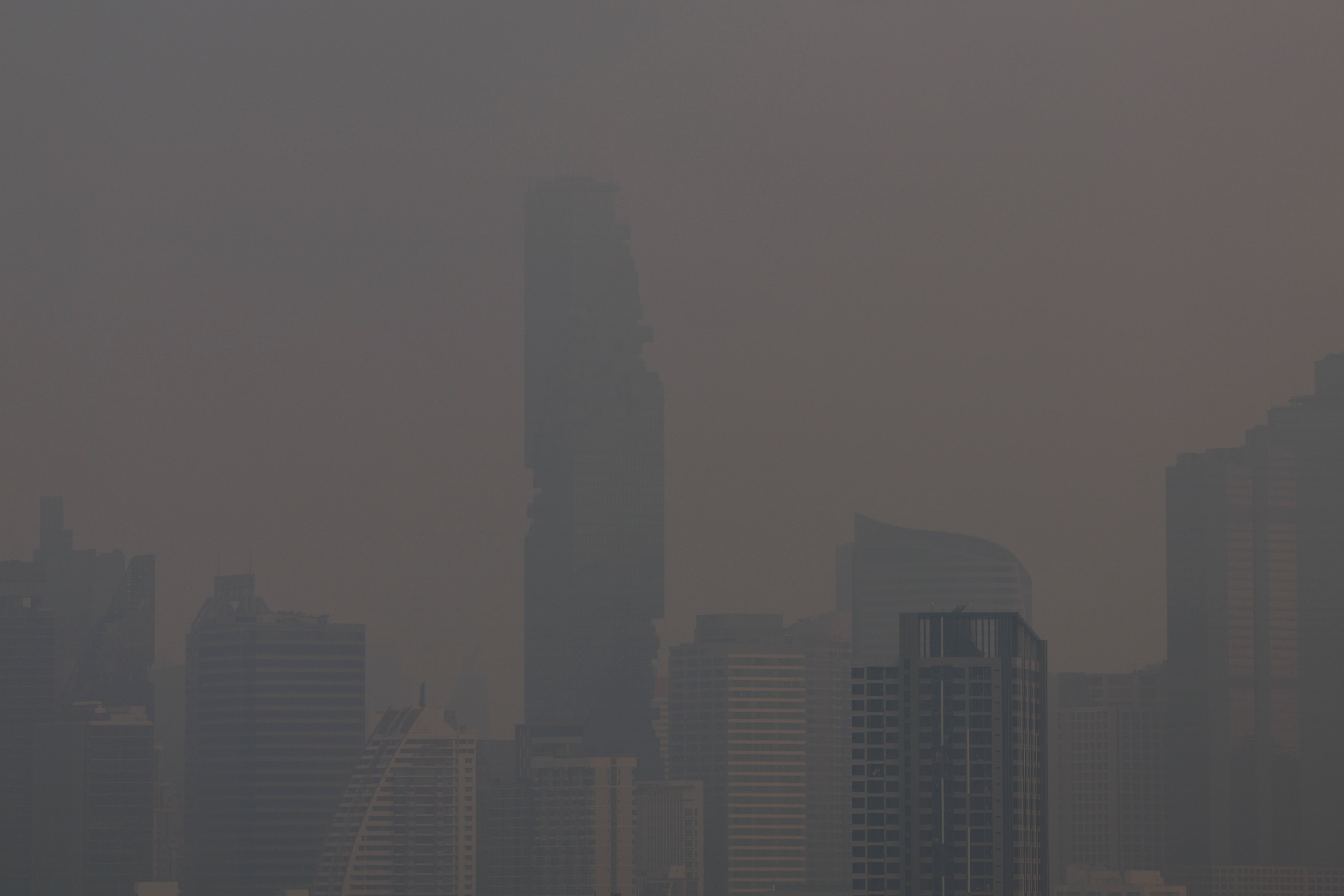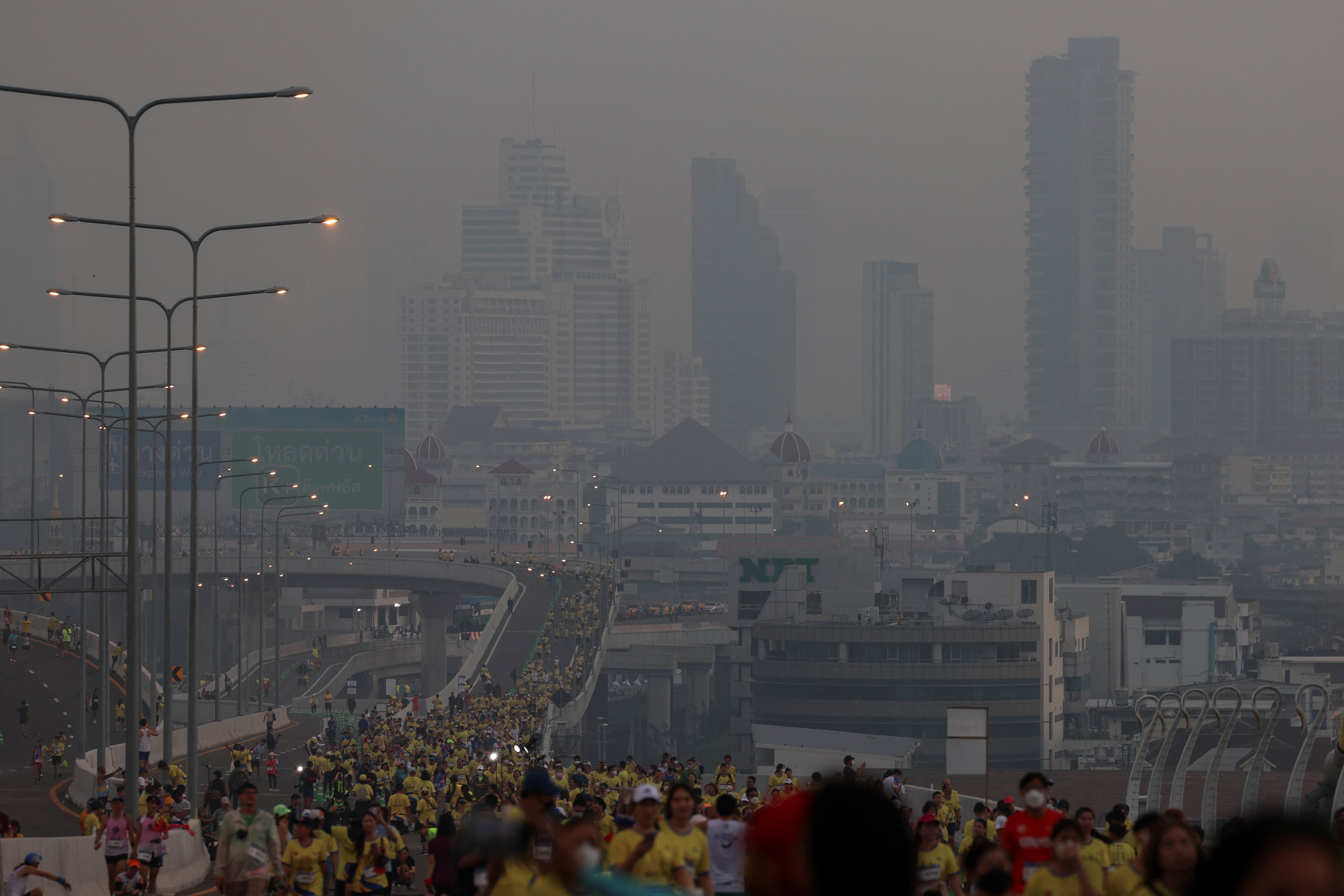Your support helps us to tell the story
From reproductive rights to climate change to Big Tech, The Independent is on the ground when the story is developing. Whether it’s investigating the financials of Elon Musk’s pro-Trump PAC or producing our latest documentary, ‘The A Word’, which shines a light on the American women fighting for reproductive rights, we know how important it is to parse out the facts from the messaging.
At such a critical moment in US history, we need reporters on the ground. Your donation allows us to keep sending journalists to speak to both sides of the story.
The Independent is trusted by Americans across the entire political spectrum. And unlike many other quality news outlets, we choose not to lock Americans out of our reporting and analysis with paywalls. We believe quality journalism should be available to everyone, paid for by those who can afford it.
Your support makes all the difference.
In a bid to curb the soaring levels of air pollution in Bangkok, authorities in the Thai capital have made travel by public transport free for a week starting Saturday.
The travel concession allows passengers to ride buses and both elevated and underground electric trains in the capital for free.
Authorities hope this initiative will reduce the number of private cars on the road, addressing one of the key factors driving the surge in pollution.
In Bangkok, public transport services including the Skytrain, metro, light rail, and buses are free for a week starting Saturday, with the government compensating the operators.
This is the latest effort to address the soaring air pollution levels, which have already led to the closure of hundreds of schools and employees working from home.
On Friday, over 350 schools were forced to close due to air pollution levels, the highest in five years. City authorities also advised people to work from home, as the air quality index (AQI) reached 159 midweek, according to Swiss-based commercial monitoring service IQAir.
AQI of 0-33 is rated very good; 34-66 good; 67-99 fair; 100-149 poor; 150-200 very poor; and 200+ as hazardous. On Friday morning, Bangkok’s AQI was 185.
“Bangkok Metropolitan Administration has closed 352 schools across 31 districts due to air pollution,” the authority said.
The level of PM2.5 pollutants hit 108 micrograms a cubic metre, according to IQAir, on Friday.
According to the World Health Organisation (WHO) recommendations, a 24-hour average exposure should not exceed 15 for the majority of the year.
“The government won’t be complacent and will take every possible action to quickly improve the situation,” Thai prime minister Paetongtarn Shinawatra posted on X, calling PM2.5 smog a “national” issue.

Her post included several short-term measures with which the government was seeking to tackle pollution, including making public transport free, limiting construction, banning crop burning, and tightening restrictions on cars emitting high volumes of black smoke.
Thailand experiences major levels of air pollution seasonally every year, as the cold winter air combines with smoke from stubble burning, car fumes, factory emissions, and dust from construction sites. Bangkok, in particular, has seen rising levels of smog in recent years, with black smoke from cars cited as one of the major contributing factors.
On Saturday, Bangkok was rated as the world’s seventh-most-polluted city based on its air quality. It was the second-worst in Southeast Asia after Ho Chi Minh City in Vietnam.

Air pollution has been a problem in several countries in Asia, among them India.
India’s capital city, Delhi, which is home to some 33 million people, has long struggled with hazardous air. The air quality index this winter repeatedly rose above 1,000, more than 15 times the level considered safe by the World Health Organisation (WHO).
Cambodia reported that air quality in Phnom Penh and three other provinces reached the “red level”, indicating high pollution. The government attributed the pollution to climate change, waste incineration, and forest fires.

